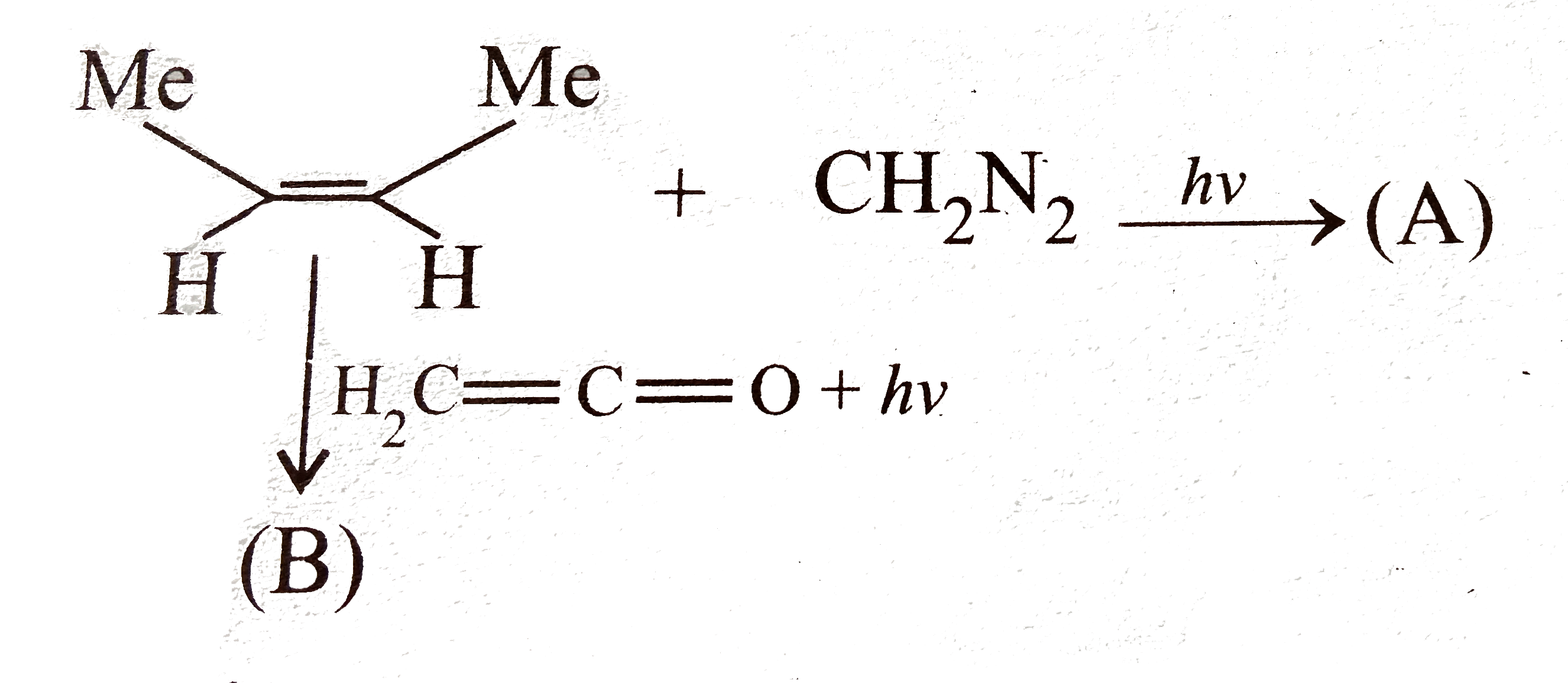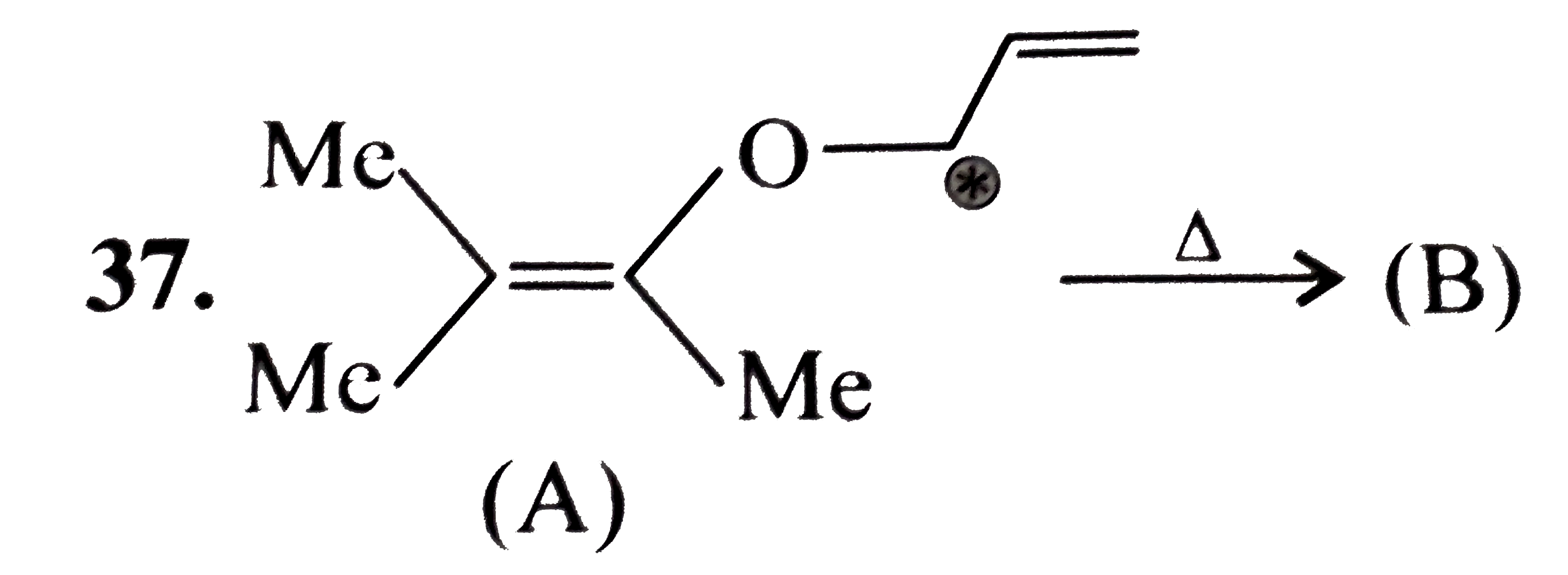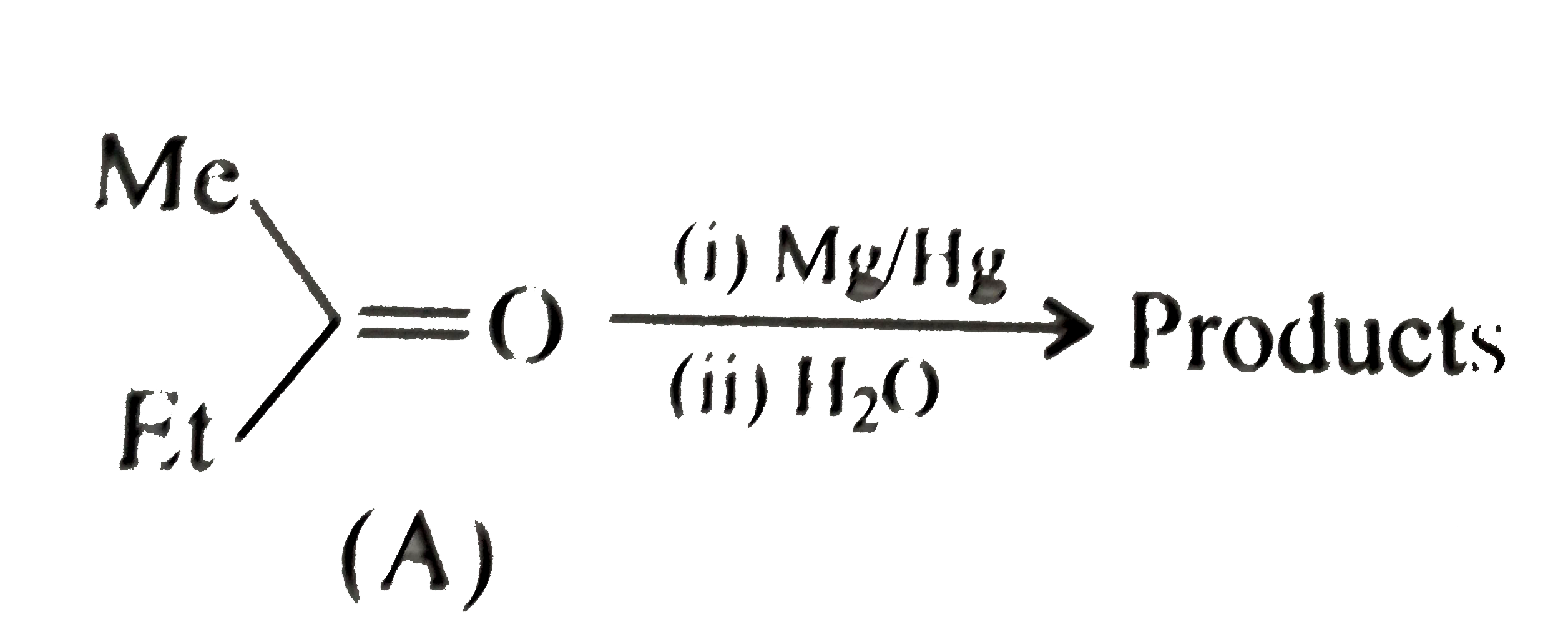Which of the statements are correct about the internal or intramolecular Cannizzaro reaction given below ?

ΘOH attacks at C-1 of (CHO) group.
ΘOH attacks at C-2 of (C=O) group.
HΘ transfer takes place from C-1 to C-2.
H⊕ exchanges from acid to alcohol ion.
The correct Answer is:A, C, D
Step by step video & image solution for Which of the statements are correct about the internal or intramolecular Cannizzaro reaction given below ? by Chemistry experts to help you in doubts & scoring excellent marks in Class 12 exams.
Topper's Solved these Questions
- BOOK - CENGAGE CHEMISTRY ENGLISHCHAPTER - ALIPHATIC AND AROMATIC ALDEHYDES AND KETONESEXERCISE - Exercises Single Correct71videos
ALIPHATIC AND AROMATIC ALDEHYDES AND KETONES
- BOOK - CENGAGE CHEMISTRY ENGLISHCHAPTER - ALIPHATIC AND AROMATIC ALDEHYDES AND KETONESEXERCISE - Exercises Assertion-Reasoning6videos
ALIPHATIC AND AROMATIC ALDEHYDES AND KETONES
- BOOK - CENGAGE CHEMISTRY ENGLISHCHAPTER - ALIPHATIC AND AROMATIC ALDEHYDES AND KETONESEXERCISE - Exercises Linked Comprehension59videos
ALIPHATIC AND AROMATIC ALDEHYDES AND KETONES
- BOOK - CENGAGE CHEMISTRY ENGLISHCHAPTER - ALCOHOL,PHENOL AND ETHERSEXERCISE - Archives Analytical And Descriptive15videos
ALCOHOL,PHENOL AND ETHERS
- BOOK - CENGAGE CHEMISTRY ENGLISHCHAPTER - APPENDIX INORGANIC VOLUME 2EXERCISE - Short Answer Type179videos
APPENDIX INORGANIC VOLUME 2
Similar Questions
Knowledge Check
- Question 1 - Select One
Cannizzaro reaction is not given by
AtrimethylacetaldehydeBacetaldehydeCbenzaldehydeDformaldehyde. - Question 2 - Select One
Cannizzaro reaction is not given by
AtrimethylacetaldehydeBacetaldehydeCbenzaldehydeDformaldehyde. - Question 3 - Select One
Cannizzaro reaction is not given by
AtrimethylacetaldehydeBacetaldehydeCbenzaldehydeDformaldehyde.
Cannizzaro's reaction is not given by
View SolutionWhich statements is/are correct about the following reaction ?
 View Solution
View SolutionWhich of the following statements are correct about the following reaction
 View Solution
View Solution
Which of the following statements are correct about the above reaction ?View Solution
Which statement is correct about the above reaction ?View Solution


